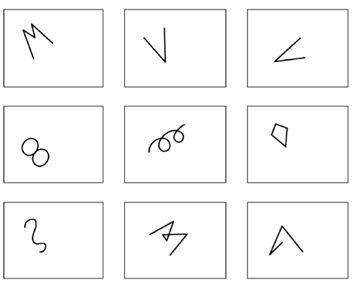
Hey fellow Creators!
Creativity is the cornerstone for problem-solving and personal fulfillment. It's that spark that drives new ideas, fresh perspectives, and groundbreaking solutions.
But if we value it so much, a crucial question emerges:
Measuring creativity seems like trying to catch smoke. Unlike typing speed or math ability, creativity manifests in countless ways, from designing a product to solving a challenge or crafting a story.
Researchers have tried for decades, and while a single creativity score doesn’t exist, different approaches reveal glimpses into the creative mind.
Following is a list of some traditional tests used to measure creativity:
The Torrence Tests of Creative Thinking (TTCT) are a widely used set of assessments designed to measure different aspects of creative thinking. It can be in either figural (pictures) or verbal (words) form. These tests were developed by E. Paul Torrence and are used to identify creative potential, guide educational interventions and in various research settings.
Here is an example of a figural form of the test.
Here are some squares with little figures drawn inside of them. Take your pencil and try to make each little figure into something else. You can do whatever you want with these. You can make them funny or beautiful. You can add words. You can use more than one at a time, whatever you want. There is no right or wrong answer here.

Here is another example of a verbal one:
Suppose you could be invisible for a day. What problems might that create? What would the benefits of being invisible be? List here whatever you can think of. Again, there is no right or wrong answer here.
💡 Insight: These tests highlight divergent thinking, but real-world creativity also needs knowledge, persistence, and strategy.
Since creativity isn’t a standalone skill, indirect indicators also matter.
Personality Traits are useful in exploring:
Problem-Solving Approaches are also a key indicator for our creativity. Ask these questions to yourself:
💡 Insight: Ask not “How creative am I?” but rather “How creative am I in this domain?”
I encourage you to really delve into your own creative potential by doing a self-analysis and personal assessment using the following tools:
💡 Insight: It’s about continuous self-assessment, not a final grade or number for your creativity.
Measuring creativity isn’t about fitting infinity into a box. It’s about understanding where your creative strengths lie, what is your domain of choice or outlet to apply your creativity and in what ways you can continue to practise and grow your creativity.
Our lives are rich with experiences and challenges which is exactly the playground to apply creativity.
Don’t go after a number or scale to define your creativity. Embrace its multifaceted nature and embody a creative mindset during your life.
I’d love to hear your thoughts on this. Hit reply and let me know what you think.
Until next time, keep learning and creating.